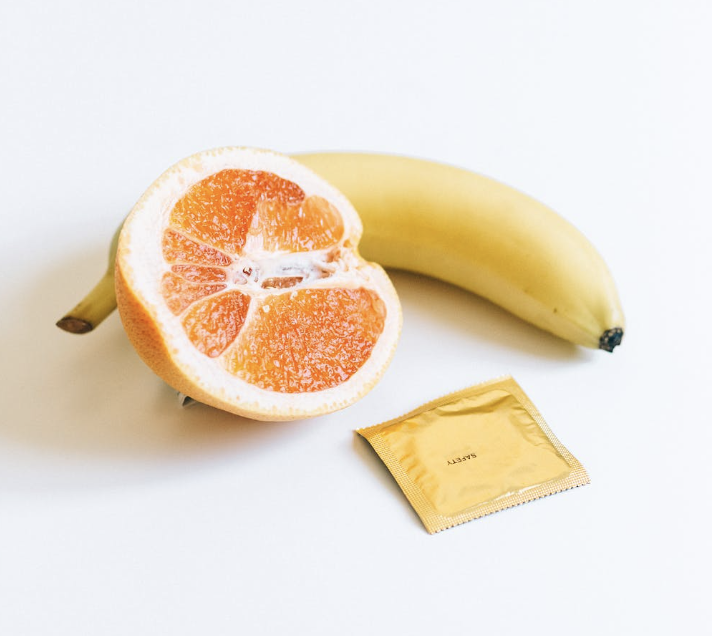From sophomore through senior year, I was a member of the Student Sexuality Information Service (SSIS), a completely student-run organization of sex educators. SSIS offers an array of sexual health and wellness products, confidential peer support, and educational events ranging in topics from healthy relationships and gender to sexuality and kink. SSIS’s educators strive to empower students with inclusive, important knowledge that they may not have received before college.
A few months after graduating, I was invited back to campus to train SSIS members on FGC. I was overjoyed that my peers saw the importance of this issue and eagerly accepted. I covered what FGC is and why it is performed, and interlaced this with survivor testimonies from the Voices to End FGM/C project, a digital storytelling workshop that Sahiyo co-hosts. I also made sure to address any myths that students may have heard, as FGC is often misrepresented in college classes. At the end, we reflected on why it was important for SSIS members, and sex educators across the U.S. in general, to be knowledgable about FGC.
Sex educators may meet survivors or people from practicing communities and are well-positioned to support survivors in their work.
In 2012, researchers estimated that over half a million women and girls have undergone or were at risk of FGC in the U.S. However, this data most likely underrepresents the true number. The study only included 1st generation immigrant populations from 30 countries, neglecting 2nd and 3rd generation immigrants who are also at risk and undergo FGC. Furthermore, a recent study demonstrates that FGC is practiced in not just 30, but at least 92 countries globally. While under-researched, anecdotal evidence also shows that FGC is practiced among Christian communities in the Midwest U.S. For these reasons, sexual educators in the U.S. should expect and be prepared to work with survivors of FGC.
What does this preparedness look like?
- Sexual educators should know the different types of FGC and reasons it is practiced.
- Educators must be sensitive to the nuances of FGC and approach the subject with non-judgment.
- Educators shouldn’t be afraid of asking clarifying questions to learn how they can best offer support for each unique individual.
Additionally, sexual educators should understand the various sexual health needs of survivors due to the physical and emotional consequences of FGC. For example:
- All sex educators should be equipped with advice for returning to sexual intimacy after violence.
- Sex educators also must be aware of the ways in which FGC can often result in trauma, which include pain, fear, and difficulties reaching sexual pleasure. In addition, they should know how these issues can be addressed should the survivor want to learn more.
With every community they work with, the goal of sex educators should always be empowerment. We should strive to promote safe spaces for open dialogue, validate emotions, and share knowledge to guide people to the sexual health and wellness decisions that best suit their needs. Survivors of FGC and other forms of violence have experienced a violation of their autonomy, so they stand to benefit the most from empowering interactions. Sexual educators are in an ideal position to support survivors in building their sense of agency.
Sexual educators stand to grow as educators by learning about FGC.
There are cross-cutting themes between FGC and other topics in sexuality that will help sex educators build their skills in all of the work they do. One example of this is gaining a deeper understanding of the intersections of culture, religion, social norms, and sex. Perceptions of sexuality are innumerable around the world and always nuanced. Studying FGC will teach sex educators how to approach conversations on sexuality with a global community.
FGC can be viewed as a lens for exploring consent in a way sex educators may not have considered previously.
Sex educators spend a lot of time learning and talking about consent. Some people hold the misconception that undergoing FGC is a choice, though girls who undergo the practice. are too young to fully understand what is occurring and give consent (girls often undergo FGC between the ages of 0 and 14). Additionally, all sex educators should know consent cannot be given when there is coercion. FGC often exists as a result of societal pressure placed on girls who are told FGC is necessary for them to be a woman, to be a member of their own culture and society, and to be married. For these reasons, consent can not be freely given to undergo FGC, because coercion will always be a dangerous factor. Considerations such as these can help sex educators to further contemplate and deepen their understanding of consent.
Sex educators do incredibly important work by sharing important health knowledge, shattering stigma, and uplifting individuals. I urge all sex educators to make sure their services are inclusive of FGC survivors by educating themselves on this important topic. Sahiyo offers many resources on FGC to begin learning, including Dear Maasi, a sex and relationships column for FGC survivors by Farzana Doctor. Perhaps most importantly, I recommend starting this education with survivor stories like those that can be found via the Voices To End FGM/C website, and ensuring that the experience and perspective of survivors is at the center of what sexual educators can learn.

